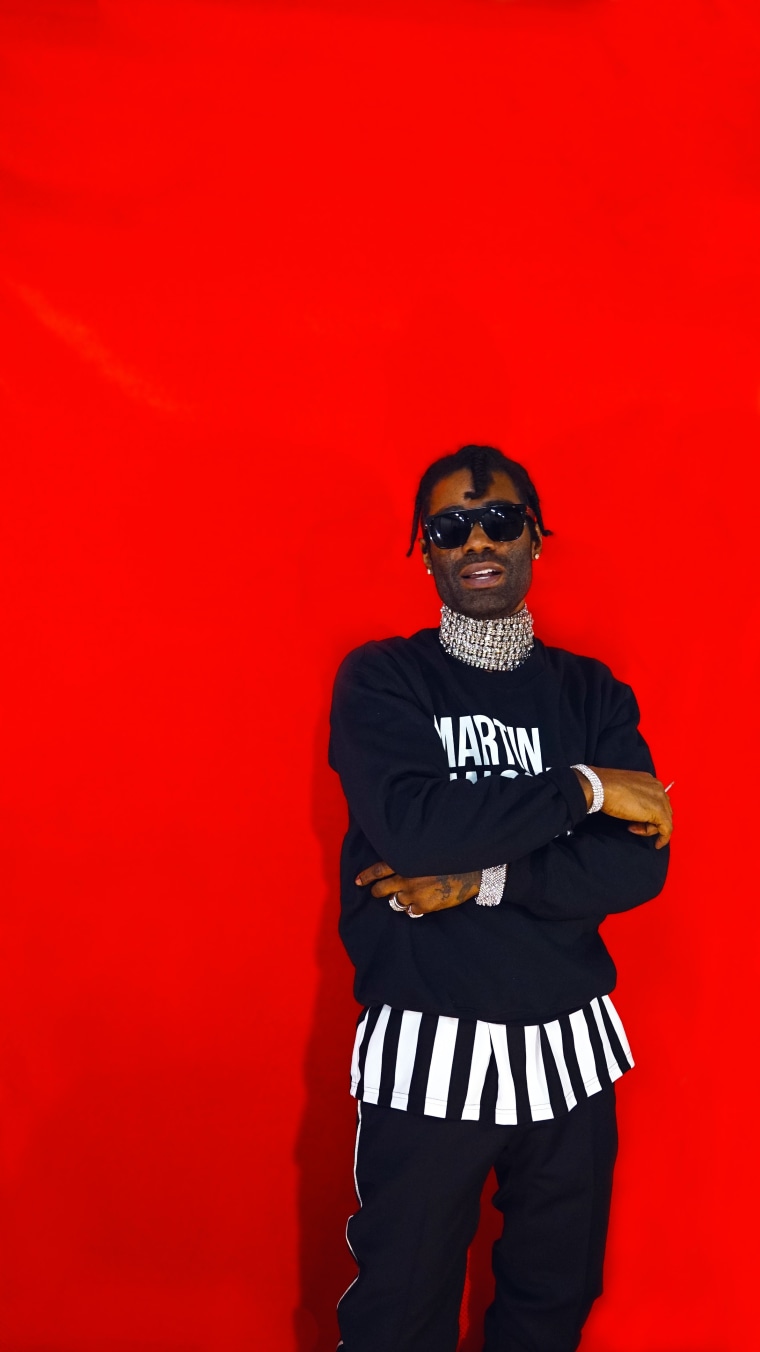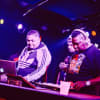 Courtesy of Bangladesh
Courtesy of Bangladesh
The FADER's longstanding series Beat Construction interviews crucial music producers.
One of the most brilliant innovations in rap is the tag, a vocal sample or sonic quirk in the first few seconds of a song identifying that track’s producer. Easy access to digital tools and the need to identify your work within the stream made tags ubiquitous and helped turn producers into stars in their own right. One of the first tags seared into my memory is by the Des Moines-born, Atlanta-based producer Bangladesh. It’s a strangled male voice croaking out “Baaangladesh,” and you know it because it cues one of the biggest rap songs of the last decade, Lil Wayne’s “A Milli.” The tag, along with the droning boom of Bangladesh’s production, reset the beatmaking stylesheet for the digital age.
But Bangladesh was already working prior to that coup. His first credits include four tracks from Ludacris’s 1998 debut album, Incognegro, including a raunchy little leg-quivering confessional called “What’s Your Fantasy?”And he went on to make some of the biggest rap and R&B-pop songs of the 2000s; Kelis’s “Bossy,” Beyoncé’s “Diva,” Nicki Minaj’s “Did It On’em,” and Gucci Mane’s “Lemonade.” Although he went on to produce some of his most outstanding work, including Rihanna’s “Cockiness” and a handful of songs from Brandy’s overlooked 2012 album Two Eleven, Bangladesh’s prominence began to slowly wane. But his hallmark remains.
Even a short conversation betrays his cynicism toward the way producers remain disposable within the industry. To that end, Bangladesh has been focused on building something like a “Bad Boy or LaFace Records-type of situation:” a roster of talented young rappers and singers, and releasing a star-studded compilation album featuring his own production.
In an interview earlier this year about the 10 year anniversary of “A Milli,” you said, “I would love to work with a lot of people. The business cripples you sometimes.” Is this part of why fans might feel your presence in the industry lacking?
[Production] is an entrepreneurial field; it gives you the power to be who you want to be and do what you want to do, with no restrictions and no limitations. But it’s kind of the opposite in music: you can’t really be who you want to be. You can’t be your true self because you’re going to rub someone the wrong way or something. People be scared of that. Having your own ideas and thought processes and morals… People tend to throw that out the window once money is involved. When you think, Why don’t other people think like I do?,’ you start to doubt yourself and feel like you’re weird or something. But nah. There’s a wave of people, and there are people who think for themselves. I’m the self-wave. I feel good when I do it my way.
Were you thinking about making music before moving from Des Moines to Atlanta?
Moving to Atlanta was written in the books. My uncle passed away and my aunt wanted to move to Atlanta and start over. She moved in 1990, and I would come visit every other summer until I moved in 1995. It was my junior year of high school. I had an idea I wanted to produce but I didn’t know how to go about it. In Iowa I wasn’t around like-minded people. I was around regular life shit; the hood, selling dope, stuff like that — and people don’t look past that. Eventually you get caught up, because that’s what it is, but I was always dreaming. When I’d have conversations with friends about life and the future, we’d be talking about different things: they was stuck in the mud, and I was in the clouds. If I never got out of Des Moines I never would’ve experienced who I really am.
Musically, what was hitting in Atlanta at that time?
Organized Noize produced Outkast and they were my favorite group. That was what solidified my decision to move to Atlanta. When I first heard Outkast, it sounded like ‘That’s where I need to be at. That’s me right there.’ That was the best time of music to me: the ’90s and early 2000s. You had to be talented to be in music. Timbaland, Organized Noize, Teddy Riley — it was a lot of people that inspired me, but I think Timbaland inspired me the most.
How did you go about making links in the industry as a relative newcomer to Atlanta?
I wasn’t searching to be discovered. My beats were different and that was part of my learning curve. I wasn’t getting nowhere going through systematic channels like managers and executives, because people don’t know what new shit is. They only know what they hear all the time, and I’m not signed to their label so they don’t need to sell my music to their artists. So I started meeting with artists myself, and then everything started changing. We speak the same language. Every placement was a personal [connection]. I already knew Ludacris, we grew up together. 8Ball was my first placement after Ludacris. I introduced myself, shook his hand, all that. I’d get on albums by selling them what I had did already. "Man I did that, "What’s Your Fantasy.'" And they’re like, "Aw man, you did that?!" So then I meet Lil Wayne and tell him I did that 8Ball & MJG. I met Busta Rhymes and I’m like, "I did that "Bossy" by Kelis."
In multiple interviews you’ve talked about how “A Milli” changed music, but can you elaborate on what you believe that change was?
It was a big song, so it was going to inspire change. When I used to hear Timbaland beats I’d try and emulate that. It’s a double-edged sword, because people are making money off my shit, but if I wasn’t influential it wouldn’t be important. I don’t think I changed the sound of hip-hop though: I think I brought it back. “A Milli” is just like an old hip-hop beat. It’s the essence of hip-hop: the 808s, something chopped. It’s just a simple, eclectic beat and when you can execute that combination you’ve got something special. I knew it was a hit because I held it for a long time. A lot of people wanted it, but I knew what it was. You can scientifically break shit down after you get it, but, when I’m making a beat, I’m not doing that. It’s a feeling that leads to another feeling.
“You can scientifically break shit down after you get it, but, when I’m making a beat, I’m not doing that. It’s a feeling that leads to another feeling.”
So you’ve got an album coming out later this year. What does a Bangladesh album in 2018 sound like?
My album is about what I was inspired by before I even did music. Being from the Midwest I was heavily inspired by all hip-hop from all regions: the West Coast, the South, the East Coast. Heavily the east, just because they ran music back then. I was also a heavy Ice Cube fan. Amerikkka’s Most Wanted was the first tape I ever bought, back when tapes were $20. I’d get an allowance, and my momma would give me $20 on the weekend and I went to buy an Ice Cube tape! Busta Rhymes inspired me, Missy inspired me.
It sounds like, I don’t know man, a body of work. Putting a “Cockiness,” with a “Diva,” with “Lemonade” — just an eclectic ass album. When Khaled is making his album, or when Puff is doing his, it’s their sound. The difference with me is that I’m physically touching the beat machine. I like to work with people that I think is going to make what I’m doing sound better. I have one song with The Game on the intro, Ice Cube on the first verse, Kendrick on the second verse, Nipsey Hussle on the third verse, and I’ma top it off with Ty Dolla $ign on the hook!
You’ve also worked with some of the most innovative women in pop music: Kelis, M.I.A., Shawnna, Nicki Minaj, Rihanna, Brandy. It’s cool that your sound has, in some way, contributed to part of what has made these artists forward-thinking.
Yes. With “Bossy,” Kelis was setting the tone for male and female artists. I was raised by females. I always imagined women singing over my beats. My beats are sexy, and women love the 808. I used to work with other, local female artists that was always pushing the envelope: We were doing “Diva”-type songs before I was doing it with Beyonce.
I actually think some of the best songs you’ve produced are album cuts like Rihanna’s “Cockiness” and the songs you did for Brandy’s album, Two Eleven.
When you’re working with an artist — well me, personally — I want to push them. I want to do some shit that you could say you ain’t tried or did, and I want to be that guy that you did it with. “Cockiness” has a sample from a movie. I had the sample for a minute, but it took me a while to make the beat. To make the right bounce, you gotta do what the sample is doing. People try to force things by, like, having the sample doing something that the drums ain’t doing. To come up with the simple part is the hard part.
The song is what makes the beat make sense. I think I actually started making that “Cockiness” beat in a Brandy session. At the time, I had this artist and producer signed to me and they wrote the song. People in music want songs. They’re not going to tell you if the beat is hot or not: you’ve got to deliver Rihanna songs. And if you want the production to be right, you’ll want to oversee it all. Part of producing is making sure the right song is on your beat.
How would you advise younger, newer producers to advocate for themselves?
Earlier in my career I had no control over what an artist is doing on the songs either. But I’d say, when you’re creating or placing songs, don’t just send the beat. Have a writer come write a song on it to further your opportunity to get a placement. Sometimes the artists don’t see the vision because there is no direction — people don’t hear beats like you do. The era I came up in, artists were open to it. I don’t know how the climate is now. I think it might come across as ‘doing too much’ today. But yeah you gotta see the record through: you gotta produce.
